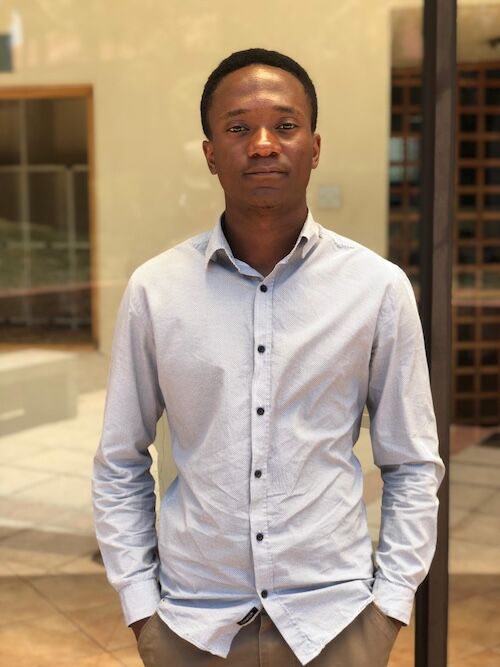Food Insecurity is a Matter of Justice
Church and Society Intern Tafadzwa Chikawa, recent graduate of Africa University in Mutare, Zimbabwe, offers his second article in a three part series on social justice concerns in Mutare, Zimbabwe.

Food insecurity remains one of the most urgent and heart-breaking challenges facing the rural communities of Mutare. In communities like Zimunya, Odzi, and Marange, families are grappling with climate shocks, deepening poverty, and the harsh reality of reduced international aid.
In May 2024, smallholder farmers in my region of Mutare faced devastating crop failures due to prolonged drought conditions. Maize and sorghum, the backbone of many rural diets, withered in the fields, forcing many families into the lean season earlier than usual with little or no reserves (Zimbabwe Meteorological Services Department, 2024).
Without the buffer provided by programs like the United States Agency for International Development(USAID) and Food for Peace initiative, these communities are now largely left to fend for themselves. School feeding programs and women-led farming cooperatives, once vibrant with activity and hope, are struggling to survive.
“Food systems that are ecologically sustainable, locally oriented, and equitably distributed are urgent priorities. We endorse policies and practices designed to ensure access to healthy nourishment and clean drinking water, especially for communities that have been subjected to environmental degradation or deprived of adequate resources to produce or purchase their own food.” (United Methodist Church Social Principles, Community of All Creation, Creation Stewardship, C., Food Justice)
Leaning into Our Faith, There is Hope on the Horizon
Protecting small-scale farmers, promoting equitable food access, and empowering rural communities to grow their own food is part of the solution for food security in Zimbabwe. Although recent cuts in international funding threaten this vision, I have witnessed the incredible resilience and compassion from local United Methodist Churches here in Mutare rural.
At congregations in Marange, Zimunya, and Nyanyadzi, members have stepped up by creating grassroots feeding schemes and reviving the traditional Zunde Ramambo model, where communal fields are cultivated together and the produce is shared with the most vulnerable.
Additionally, church-run agricultural workshops have taken on a critical role in promoting conservation farming and climate-resilient crops such as millet, cowpeas, and sorghum. These initiatives are not only offering short-term relief but are laying the foundation for long-term food sovereignty.
Our churches have also partnered with local schools to establish nutrition gardens, helping children access fresh vegetables while learning sustainable farming skills. This is what faith in action looks like transforming lives through compassion, education, and empowerment.
As a member of King David UMC and an intern with the General Board of Church and Society, I believe that the UMC has both the capacity and the moral responsibility to respond to this crisis. The Church must use its voice to advocate for increased national investment in rural food programs and to explore alternative funding mechanisms to fill the gap left by USAID.
The General Board of Church and Society, working with partner organizations, can advocate for international policies and influence United Nations resolutions that uphold food justice initiatives and protect the rights of rural communities across the world.
Food justice in Mutare rural is not just a matter of charity it is about restoring dignity, securing human rights, and fulfilling our Gospel call to care for the least of these (Matthew 25:35–40, NRSV).
The situation is serious, but not hopeless. With united efforts from the Church locally, nationally, and globally we can help build a food system that ensures that every family in Mutare rural has access to nourishing food and the tools to grow it with dignity. I share this message as someone who lives the reality daily and believes deeply in the transformative power of faith, justice, and community.
About The Writer

Tafadzwa Chikawa, is a recent graduate of Africa University in Mutare, Zimbabwe (June 2025) earning a Bachelor of Science (Honors) in Social Work.
Growing up in Mutare, he learned early on the value of community. At Hartzell High School, Tafadzwa served as Vice President of the Leo Club, leading donation drives for orphanages and senior homes. Through his involvement with King David United Methodist Church in the Zimbabwe East Annual Conference, he held various leadership roles in the United Methodist Youth Fellowship, including Secretary and Vice President.
Serving in the Ethnic Young Adult Internship Program at the General Board of Church and Society, Tafadzwa is planning to grow as a communicator, advocate, and servant leader, creating meaningful change in both the church and society.